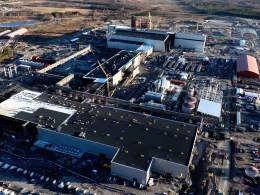The Royal Bank of Canada (RBC), the country’s largest lender, has withdrawn its sustainable finance goals, citing recent amendments to Canada’s Competition Act that impose stricter standards for environmental claims.
In its 2024 sustainability report published on Tuesday, RBC stated that a review of its methodology had revealed shortcomings in how its sustainable finance activities were cumulatively measured. The bank had previously pledged to facilitate C$500 billion (£289 billion) in sustainable finance by 2025, a target it has now abandoned.
“Recent amendments to Canada’s Competition Act limit the information we can share on certain sustainability disclosures and the progress we are making and have restricted our ability to publicly report on several metrics,” the bank said in a statement. The updated legislation, aimed at curbing greenwashing, requires firms to substantiate their environmental claims or face legal repercussions.
RBC added that while it had developed a methodology to determine its energy supply ratio—the proportion of financing for low-carbon energy projects versus fossil fuels—it could not disclose the figure due to the regulatory constraints. The bank will continue tracking the ratio internally.
The decision comes as part of a broader retreat among major North American banks from high-profile climate commitments. RBC, along with U.S. counterparts Citigroup and JPMorgan, had agreed to disclose their energy supply ratios after pressure from the New York City Comptroller. However, all three institutions have since exited the Net-Zero Banking Alliance, a UN-backed initiative originally championed by Mark Carney.
Carney, who won re-election as Canada’s Prime Minister on Monday, now faces mounting pressure from climate advocacy groups to reinforce sustainable finance leadership. “The banks are not showing leadership,” said Richard Brooks, climate finance director at Stand.earth. “The ball is in Carney’s court to step in and take action.”
Environmental campaigners warn that financial institutions are exploiting shifting political climates—particularly under the renewed presidency of Donald Trump—to roll back on decarbonisation efforts.





















